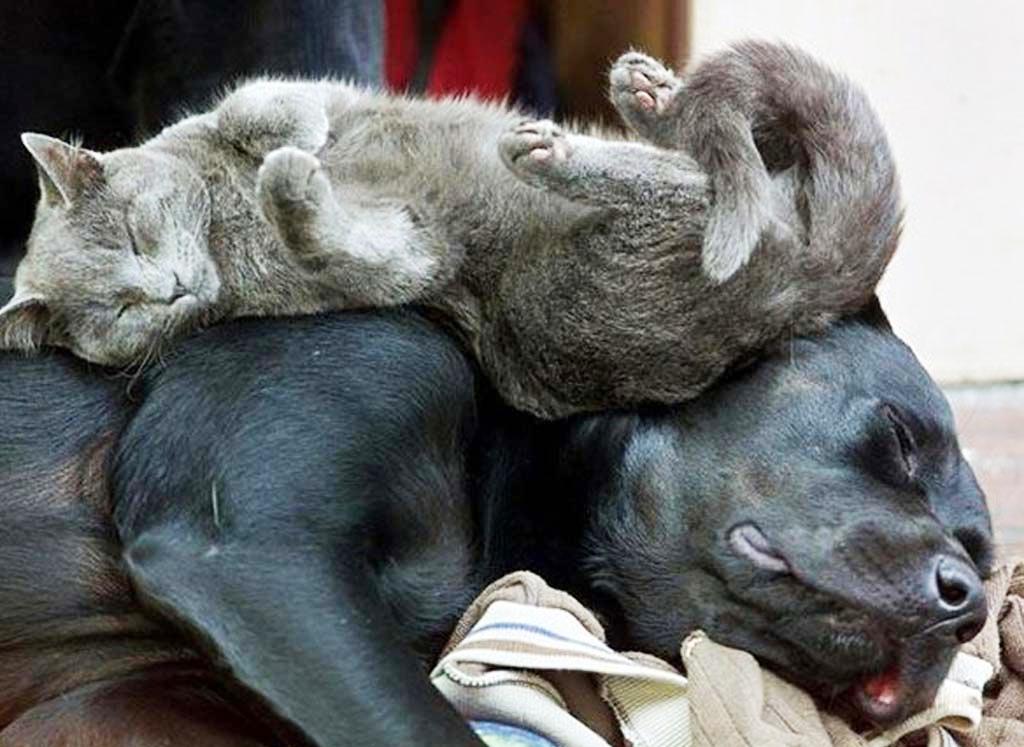Photo Credit: pxhere.com
As pets move into their geriatric years, you will notice all the common signs of aging that they share with their human companions: Your pet’s hair may turn grey, body and reflexes are dulled, hearing, eyesight and sense of smell deteriorates and energy levels decline.
Behavioural changes include longer, deeper sleeping habits, reduced activity and a greater need for affection.
How Can The Village Vet Help?
The Village Vet has on-site ultrasound for abdominal and echocardiography equipment for quick diagnosis of issues presenting with abdominal or thoracic fluid, tumours, foreign bodies and various organ diseases. Echocardiography allows us to identify heart diseases and the causes of a heart murmur.
We have a comprehensive on-site pathology laboratory that provides quick results for haematology and biochemical blood analysis, blood smears, urinalysis and cytology.
Dr Martine Perkins has a niche interest and expertise in Chemotherapy treatment for domestic pets and our staff are trained to administer Oncology and Chemotherapy treatments on-site.
The Village Vet is only one of a few practises in Sydney to offer on-site Radioactive Iodine (I-131) therapy treatment for cats. Full details of this highly effective and safe treatment can be found here. Or call our Killara Hospital for more information on 8350 5678.
What to Expect with a Senior Pet
Our pets are part of our family and as they get older, they seem to want more of the same things as their elderly human companions do.
Managing care for elderly pets often involves making difficult, emotional decisions. Be sure to know that The Village Vet are here to help you make those decisions. Whatever course you decide for your pet, we will walk you through your choices to ensure the best outcome for your pet and your family.
These big decisions can include deciding between long care treatment, palliative care or euthanasia:
1/ Long care treatment
The Village Vet staff are highly trained and qualified to look after your senior pet. This includes all aspects of care – maintaining wellness, early and correct diagnostics, preventative therapies and critical medical and dietary management.
Read on to find out how we look after our special, senior clients.
Wherever necessary we will refer clients to one of our respected, external specialists who work with us to complement our team where needed. Visits may be arranged on-site where required.
2/ Palliative care / Veterinary palliative medicine
Palliative care is used to treat a life-limiting condition when a cure is not possible. We provide medication to manage the symptoms of that illness for the remainder of your pet’s life.
Palliative care provides your pet relief from a wide variety of symptoms that they will experience when living with this life-limiting prognosis. These symptoms include those that interfere with every day activities such as pain management, toileting, eating etc.
3/ Euthanasia
Euthanasia is the act of inducing humane termination of life with the minimum of pain, fear or distress to the animal involved. It is most often used with terminally unwell or injured animals, where the prognosis is considered hopeless.
Understanding how euthanasia is performed will help an owner in this decision. Call us at the Pymble Clinic on 9499 4010 or Killara Hospital on 8350 5678 prior to making these decisions. We will talk you through the procedure so you know what to expect. We will help you best cope with your choices and make you feel confident in your decision – whatever that may be. Bereavement is a difficult emotion. We are here to help.
How to Take Good Care of Your Senior
Start by making sure their basic needs are met but you will need to adapt these to their current abilities.
The Village Vet highly recommends increasing your Vet Health Checks to twice a year as the best place to start when it comes to looking out for your elderly pet.
The Six-Monthly Health Check
1/ Pathology Checks
A senior blood profile might include a urine and faecal analysis and a full blood screen in order to identify early symptoms of disease. Cats and dogs may also be tested for thyroid disorders. Cats may be tested for feline leukaemia or immunodeficiency virus.
To help pet owners with this extra level of elderly care, every June The Village Vet have a Pathology discount offer for seniors. Check out our June Seniors Health Check Offer. To make an appointment you can book online or call us at the Pymble Clinic on 9499 4010 or Killara Hospital on 8350 5678.
2/ Vaccinations, Flea, Tick and Worming Treatments
Your elderly pets may not be getting out and about so often any more but it is still critical to their wellbeing, and highly recommended by The Village Vet, to maintain their regular vaccination and parasite programs throughout their life. Diseases such as Leptospirosis can be acquired from your own back yard so ongoing preventative care is recommended.
3/ Weight Management, Exercise and Food Review
We are often indoors more with our pets during winter months. This can easily lead to the “winter-bulge” that can easily lead to health issues, particularly for older dogs. Older pets are easy to exercise less because they do not get so restless, however, the health benefits of continuing a regular exercise routine are enormous – for both your pet and yourself.
Obesity is a serious health risk for pets. Use this Weight Management guide to check if your pet is overweight. Here are some tips for exercising seniors that may help you keep them moving.
As your pet ages, they sometimes experience a reduction in taste sensation. Elderly pets are often less active so monitoring your pet’s diet and making adjustments can be beneficial. These factors may lead to an increase in “fussy” feeding behaviours or a reduction in appetite. Some elderly pets find increasing the number of meal times and reducing the amounts accordingly leads to a more comfortable digestion.
Food options impact many aspects of your pet’s wellbeing and your vet will take this opportunity to review food choices that will help combat these changes.
4/ Osteoarthritis (Arthritis) and Joint Health
Osteoarthritis (commonly known as arthritis) is a degenerative, painful and debilitating joint disease that affects dogs and to a lesser extent cats. It makes movement difficult and painful and gets progressively worse over time.
Simply put, “Osteo” refers to bone and “itis” refers to inflammation.
Signs of Osteoarthritis
- Difficulty or reluctance to walking, climbing stairs or jumping/landing.
- Stiffness when moving to stand or lie down and taking time to “get going” after resting.
- Resting more than normal, decrease in general activity, particularly play time.
- Abnormal gait, limping and dogs may “bunny hop” with their hind legs instead of running normally.
- Swollen joints that are warm to the touch.
- Toileting accidents.
- Licking or gnawing at a joints or paws.
- Repelling your petting/touching them.
- Postural change or muscle wastage.
- Cats may become more withdrawn and hide more often.
- Cats fail to groom themselves, eat less and loose weight.
Read our in-depth Joint Health Blog for more details on this common and manageable disease.
While there is no cure for osteoarthritis and it can significantly impact their quality of life, it can be quickly and easily diagnosed by our experienced team of Veterinarians. Book online at The Village Vet or call us directly at the Pymble Clinic on 9499 4010 or Killara Hospital on 8350 5678 for an assessment.
Weight control, exercise, anti-inflammatory medications and home alterations are just some of the options your vet will take you through if you pet presents with these symptoms.
Medications work by:
- Reducing inflammation and pain.
- Restoring cartilage through regeneration.
- Preventing joint degradation.
- Protecting the remaining healthy cartilage.
Even if your dog shows signs of arthritis, it’s still important to keep your seniors active.
5/ Temperature Regulation is Altered
Our ageing pets often find it harder to regulate their temperature. The Village Vet can help you manage this for them by providing relevant tips for your specific pet.
Keeping your pets cool in summer is critically important because heat stroke can become life threatening very quickly. Here are some tips your pet with appreciate during the hot summer months.
Signs of heat stress include: vocalisation, panting excessively, bright red gums, and can progress to vomiting, uncoordinated walking, seizures, collapse and unconsciousness.
Keeping your pets warm in winter greatly helps their health and wellbeing. Most importantly keep them dry and away from drafts and damp.
Signs your pet is cold include: shivering, shaking, whining, anxious behaviour, seeking places to shelter, hunched posture with tucked tail, lifting one paw off the ground.
If you suspect your pet is struggling with signs of heat stress or cold, call The Village Vet immediately at the Pymble Clinic on 9499 4010 or Killara Hospital on 8350 5678.
6/ Dental Disease
Tooth decay not only makes it hard to eat but also increases the likelihood of infections both in the gums and surrounding bones. It can also seed infection in other organs so if your pet has bad breath, it may be signs of dental disease. Your vet will review your pet’s food and suggest any necessary changes.
Regular brushing at home can significantly reduce dental decay and may help with emotional bonding in older animals too.
Giving your pets a bone can help. The mechanical action of chewing the meat off a bone helps to remove plaque, which minimises the formation of tartar (calcified plaque). Giving your pets bones regularly can increase the time between dental cleans at the vet and keep your dog’s teeth cleaner and healthier for longer.
Having said that, every dog is different, so choosing the right type and size of bone for your pet is critical.
7/ Prostate Enlargement and Mammary Gland Tumours.
Such problems occur mostly in un-desexed animals. If your pet is not desexed make sure you notify your vet and ask them to check these organs in particular.
8/ Grooming: Hair and Skin
Older pets experience skin, coat and nail changes so they may need extra help with these daily routines as they age. A routine of grooming, scratching and massaging is a great habit to get into. Not only will you be more likely to notice any bumps, lumps or strange changes, it’s also a wonderful bonding opportunity.
It is important to increase the number of times you brush out your senior pet’s coat per week and use vet recommended shampoos and treatments to help them stay clean and feeling great. If you need advice on skin and coat changes, give us a call to discuss options for skin and coat health.
Your vet will check for thyroid disorders and other endocrine problems which commonly occur in older pets. This is reflected in skin and coat changes and may indicate signs of hyperthyroidism, hypothyroidism, cushings disease or other ailments. Hyperthyroidism, is a common disease appearing in middle/older-aged cats. Read about our dedicated, on-site Iodine 131 therapy treatment located in our Killara Hospital.
9/ Grooming: Nails
Nails are also a big one. They won’t file down of their own accord like they used to if your pet is less active, placing pressure on their joints, snagging on carpets, blankets or inadvertently scratching others.
More frequent nail trimming is needed to ensure they are balancing their weight equally on each limb. If you’re not comfortable trimming your dog’s nails, make an appointment with one of our nurses and bring your pet in for a pedicure.
10/ Canine cognitive dysfunction (Stress)
Cognitive decline may show itself with restlessness, confusion or altered behavioural patterns.
For this reason, senior pets often have a harder time handling stress. Simple things that were not issues before may become issues such as separation anxiety, interacting with other pets, visitors coming into the house and, new noise phobias. Or they may just be more agitated or irritated than usual.
A loss of cognitive ability is common in older pets. They may forget simple things like how to navigate around an obstacle and not recognise people that they know. They may have bathroom accidents or simply start to bark/meow at nothing in particular. Nightime restlessness is also common.
You can help reduce anxiety and stress in your older pets by keeping floors free of clutter, ensuring you have no slippery surfaces, taking dogs for more frequent, short walks and playing games or food puzzles to increase their mental stimulation.
Ensure that you pets have space away from strangers and kids, keep a constant routine such as brekkie and dinner time, walk time etc. Be more patient – they pick up on your mood or energy no matter how old they are, so aim to keep your energy calm, patient and loving.
Our staff at The Village Vet will advise you correctly on medications to help your pet settle.
11/ Increased Thirst
Increased thirst is a possible sign of diabetes, kidney failure, liver issues or Cushings disease. Your veterinarian will determine this and prescribe the appropriate medication.
12/ Separation Anxiety
Anxiety presents itself when older pets (particularly dogs) cannot cope with stress when separated from their human family. Medication combined with behaviour modification techniques are key.
13/ Emotional Needs & Extra TLC
Just as critically to your senior pet is their emotional needs. This is where you, as a pet parent are able to enhance the remainder of their life to the fullest. They sometimes require more love and affection than our spirited younger versions so you may be required to give your pet that extra one on one time.
Parents Always Know Best
Prevention is always better than cure, a proactive preventative care program for your pet will enhance their lives and reduce the risk of them having to undergo more extensive and costly treatments, ask us for more advice on the best course of action for your pet.
Remember, you know your pet best so if you notice anything out of the ordinary, give us a call so we can advise you on the best health care plan. Together, we can ensure we keep them happy and healthy to the very end of their beautiful lives.
Make a booking to see one of our highly trained vet staff at The Village Vet. Or call us directly on 9499 4010 (Pymble Clinic) or 83505678 (Killara Hospital).


